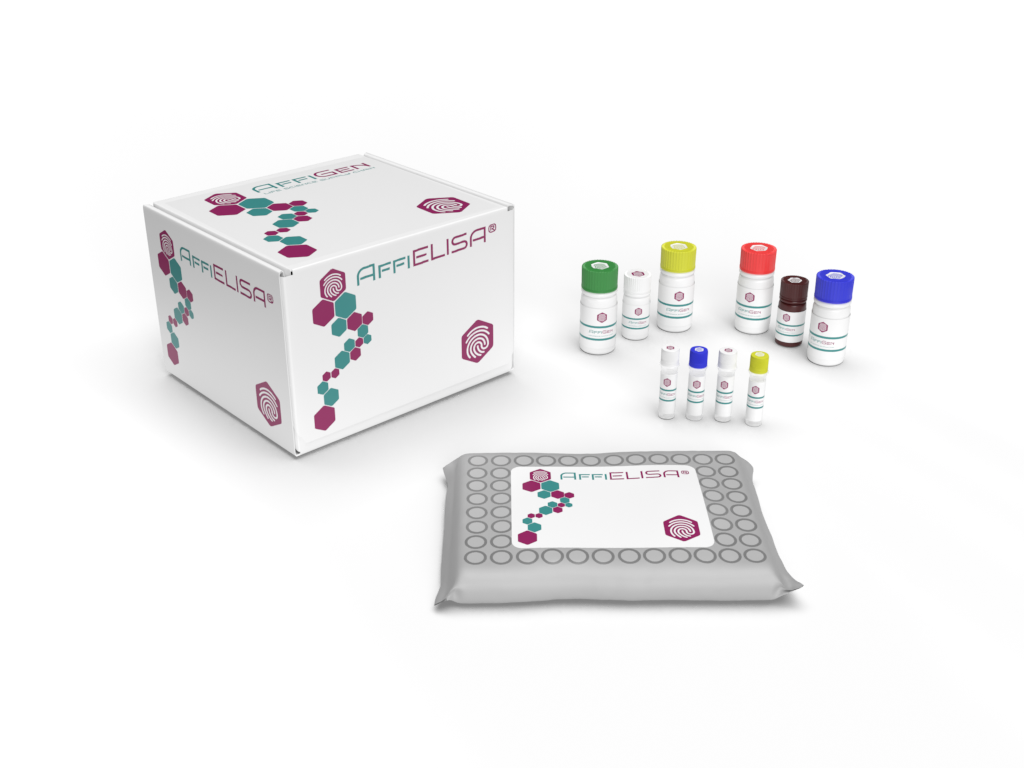AffiELISA® Porcine Protein Carbonyl | PC | ELISA Kit
The AffiELISA® Porcine Protein Carbonyl (PC) ELISA Kit serves as a crucial tool in evaluating oxidative stress within porcine systems. Oxidative stress, triggered by an imbalance between free radicals and antioxidants, leads to protein oxidation, a phenomenon measured by protein carbonylation.
This ELISA kit provides researchers with a reliable method to quantify protein carbonyl levels in porcine samples, including serum, plasma, tissue lysates, or cell culture extracts. By detecting and quantifying protein carbonylation, scientists gain insights into the extent of oxidative damage within porcine cells or tissues. This information is pivotal in understanding the impact of oxidative stress on porcine health, as well as in various research areas including animal physiology, nutrition, and disease pathology.
The kit utilizes a highly specific and sensitive immunoassay technique, allowing researchers to precisely measure protein carbonylation levels. It provides a streamlined process for detecting and quantifying these oxidative stress markers, aiding studies related to the effects of diet, environmental factors, disease conditions, and therapeutic interventions on oxidative stress in porcine models.
Understanding protein carbonylation in porcine systems contributes to elucidating the role of oxidative stress in pig health, welfare, and performance. Researchers leverage this ELISA kit to explore the impact of oxidative damage, potentially identifying novel therapeutic targets or nutritional interventions aimed at mitigating oxidative stress in pigs.
Product Specifications
Species
Porcine
Gene / Target
PC
Assay Type
Sandwich ELISA
Assay Length
3-4 hours
Porcine Protein Carbonyl Background
Porcine protein carbonylation is a biochemical process related to oxidative stress. Oxidative stress occurs when there's an imbalance between free radicals (reactive oxygen species) and the body's ability to neutralize them through antioxidants. This imbalance leads to the oxidation of various biomolecules, including proteins. Protein carbonylation specifically refers to the modification of proteins, forming carbonyl groups that can serve as markers for oxidative damage.
In pigs, as in other organisms, protein carbonylation is a crucial indicator of oxidative stress levels. When cells are exposed to excessive oxidative stress due to various factors such as environmental stressors, diseases, or dietary imbalances, proteins can become oxidatively modified. This modification can affect protein structure and function, potentially impacting the cell's overall health and function.
Researchers studying porcine physiology, nutrition, diseases, or environmental factors often analyze protein carbonylation levels to gauge the extent of oxidative stress. Quantifying these protein modifications provides insights into the impact of oxidative stress on pigs' health, cellular function, and susceptibility to diseases. These studies aid in identifying potential interventions or management practices to mitigate oxidative stress in pigs and improve their overall well-being.
